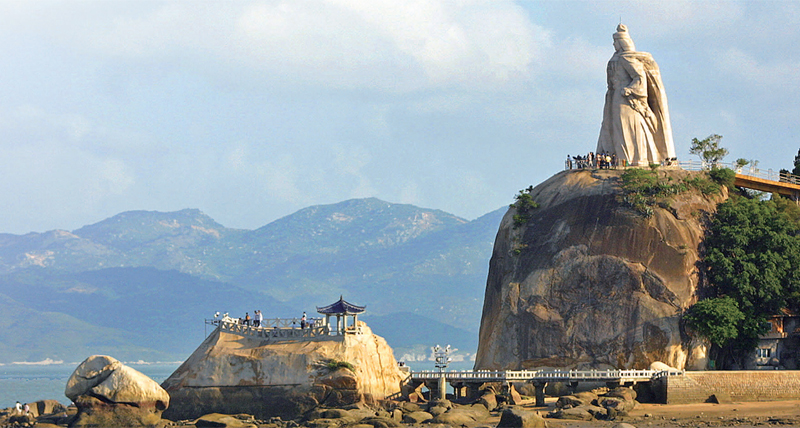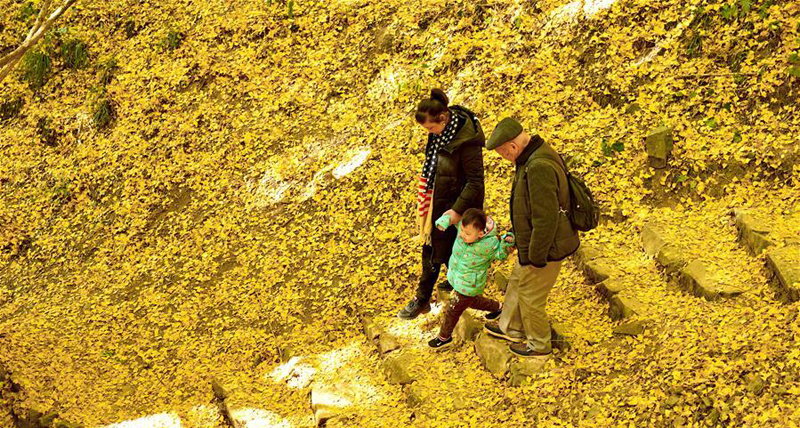Zheng Chenggong
chinadaily.com.cn| Updated: May 5, 2019

Zheng Chenggong (1624-1662) was a militarist and a national hero in the late Ming (1368-1644) and early Qing (1644-1911) dynasties.
Zheng was born in a small Japanese coastal town. When his father was given an official position in maritime defense by the Ming court in 1630, Zheng was recalled to the ancestral home in Fujian province.
In 1645, Emperor Longwu of the Southern Ming Dynasty (1644-1683) conferred the imperial surname, Zhu, upon Zheng Chenggong. Thus he was also commonly called Guoxingye (lord of the imperial surname), or its Hokkien honorific Koxinga.
In 1646, Zheng led the Ming armies to resist the Manchu invaders of the Qing Dynasty. With Zheng's considerable strategic and organizational talents, he built a strong position on the Fujian coast and set military bases at Fujian's Kinmen and Xiamen.
In 1659, Zheng launched his most ambitious military campaign, a maritime expedition with more than 100,000 troops up the Yangtze River. With large Qing forces still campaigning in the south, he achieved remarkable initial success, smashing through the lower Yangtze defenses to the gates of Nanjing, Jiangsu province. There, however, mistaken strategy and failure to heed his field commanders' advice led to a disastrous defeat.
Forced back to his original base at Xiamen, Zheng was still unbeatable at sea. But the collapse of Ming resistance in the southwest and the Qing’s new policy of forced inland emigration of the coastal population put him in a dangerous position. In these circumstances he hit upon the plan of taking Taiwan from the Dutch as a secure rear base area.
In 1661 he landed on Taiwan near the main Dutch stronghold at Anping (near present-day Tainan) with a force of more than 25,000 men. After an eight-month siege, the Dutch garrison capitulated. However, a year after this success, Zheng died.
During Zheng's lifetime, he fought against the Qing Dynasty, drove out the Dutch colonialists and recovered Taiwan as China’s territory. He was commemorated on both sides of the Taiwan Strait.



 play
play